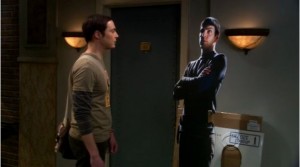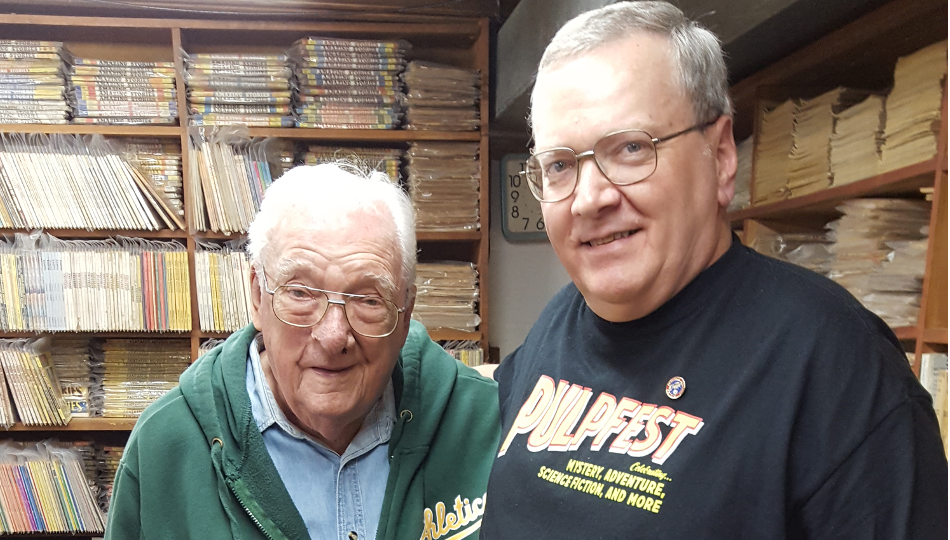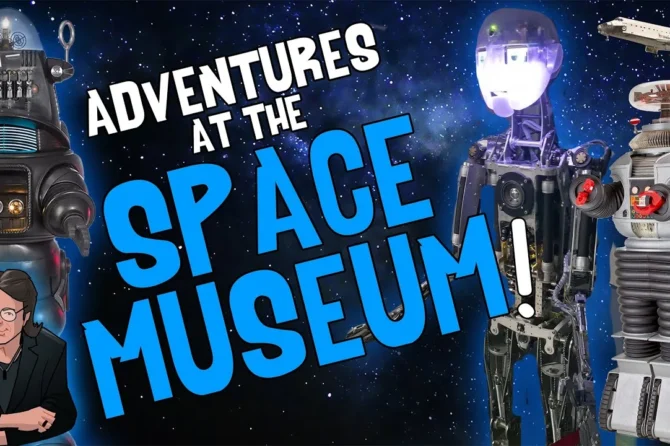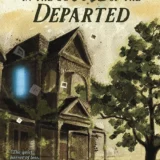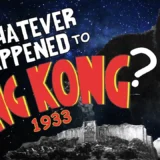Only the most wildly imaginative writer of speculative fiction could have envisaged a day when America’s most popular sitcom would be about science fiction fans.
Yet that is what has happened with the enormous success of The Big Bang Theory, an international hit whose cast won’t get out of bed for less than a million dollars. (That’s almost literally true after a pay dispute prompted the principals to stay home for the first day’s work of the latest season.)
Science fiction fans are used to being the butt of comedy that portrays them as infantile losers with no social skills. The famous Captain Kirk sketch from Saturday Night Live was just one high-profile example of that. So lovers of the genre might have been understandably cautious about the prospect of being represented in a situation comedy.
On paper, you might think the characters of The Big Bang Theory fit the long-established stereotypes. There’s one who lives with his mother. There’s one who (literally) can’t speak to women. There’s one so rigid and obsessive that he makes charts of his bowel movements, and so socially unskilled that he has to draw up contracts to govern his personal relationships. And there’s the high-functioning one who tries to get along in the mainstream world and is often embarrassed by his friends.
Yet there is more to The Big Bang Theory than this.
For one thing, this is a sitcom about successful people. All of the four male characters are academics; three of them have ‘Dr.’ in front of their names, while the fourth eventually becomes an astronaut, albeit a nervous one. The male characters’ love of SF, comic books and role playing games is a passion they share when they’re not doing mind-bending science. (Two of the show’s three women characters have doctorates and are eminent in their fields, too, but show no inclination towards fandom.)
Sometimes, the references to SF and fantasy in the show are so well-judged that genre lovers can surely feel the writers understand them. Take, for example, the lead character Sheldon Cooper’s insistence on watching the Star Wars films in order of their episode number, because “I prefer to let George Lucas disappoint me in the order he intended”. Or take the fact that, for the maladjusted Sheldon, the best thing in Star Trek: The Next Generation was the almost universally derided boy genius Wesley Crusher.
But aside from clever references like that, should fans feel we’re being invited to laugh along with the show, or are we being laughed at?
There’s no shortage of debate online about that point, but I think something really interesting and heartening is going on in the show. I think SF fans are getting a tiny taste of the experience that a host of social groups have had in seeing themselves represented on screen.
I don’t want to suggest that SF fandom’s struggle for fair treatment is in the same league as that of women, minority ethnic groups or gay and lesbian people, but there are, in a small way, some similarities. (There is, of course, substantial crossover between fandom and those communities too.)
Like those groups, fans once tended to appear in comedy only to be mocked and stereotyped. Yet eventually, entertainment makers realised they were too important to be so easily derided. And once that point had been reached, the time was right for TV comedy to treat fans on a par with anyone else. They could at last be represented as exaggerated yet recognisable comic characters. The real life foibles and eccentricities to be found among them could be milked for comedy, without the fear that an entire community was being slighted in the process.
Thanks to The Big Bang Theory, fans are being portrayed in TV comedy as being as worthy and as ridiculous as anyone else. Fandom has become well and truly mainstream.
(Ed. Note: Steven H Silver provides Amazing Stories with a Big Bang Theory recap here every Monday)


